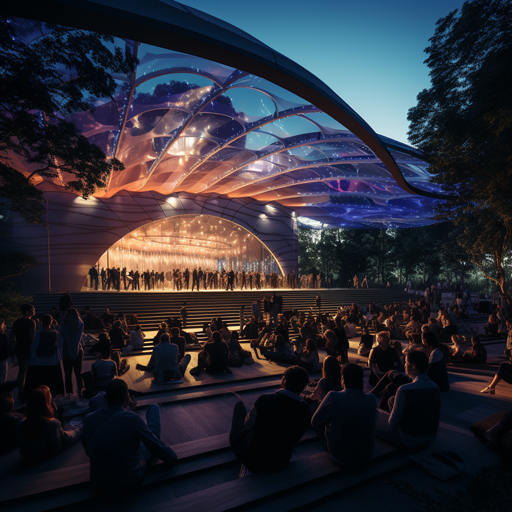The team assembled to develop the Center for Arts and Innovation is moving quickly to make the proposed cultural campus in Mizner Park a reality.
In a Nov. 27 update to City Council members, center chair and CEO Andrea Virgin said she expects to submit a new project design to the city in April and a site plan one year later.
The team has expanded to include theater, cost and safety consultants as well as a local architect, landscape architect, structural engineer, parking designer and construction manager.
The centerʼs board of directors has four new members who are experienced with large-scale commercial projects, including Michael Kaufman, CEO of Kaufman Lynn Construction, Camilo Miguel, CEO of Mast Capital, and Ian Weiner, CEO of PEBB Enterprises.
She also noted two significant previously announced developments: The center has surpassed city- imposed fundraising requirements and has selected the renowned Renzo Piano Building Workshop, whose partners include Pritzker Architecture Prize-winner Renzo Piano, to design the performing arts complex.
“I cannot underscore enough how significant this announcement was,” she said of the selection of RPBW, noting it had garnered local, national and international media coverage.
“We deeply believe this project will change the city,” Antoine Chaaya, an RPBW partner, told council members.
Center officialsʼ Oct. 21 deadline to raise $25.4 million, which is 25% of hard construction costs for the project, came one year after the City Council approved a deal that allows the center to be built on city-owned land. They topped that by raising $26.4 million.
An anonymous donor contributed $10 million. Those who contributed $1 million or more are the James and Marta Batmasian Foundation, philanthropist and arts patron Elizabeth H. Dudley, the Kent Jordan Family, the Schmidt Family Foundation, the Edith and Martin Stein Family Foundation, and Virgin, in remembrance of her late first husband, Thomas J. Virgin, who died in a 2015 plane crash that claimed the lives of everyone onboard.
With a design team now in place, “it is pedal to the metal on fundraising,” Virgin said. She anticipates meeting a second fundraising deadline set for October without difficulty, but said there is uncertainty on how philanthropists will react to “what is going on geopolitically,” a reference to the Israel-Hamas war.
Center officials previously released stunning renderings of what the project could look like when finished. Those were not intended to be the final design, but rather to show the size and scope of the project, Virgin said.
Now that RPBW is onboard, the appearance will change, although the parameters of the project will not, she said.
“What is important is not to betray the city expectation,” Chaaya said.
While the estimated project cost has risen from $115 million to $140 million, that likely is not the final figure as construction costs continue to increase, Virgin said.
Team members expect to build the project all at once, but Virgin said they are prepared to build it in phases if necessary.
Under the deal with the city, the project must be completed by 2033. But Virgin wants to start construction in 2025, the year that marks the cityʼs 100th birthday, and finish it in 2028.
